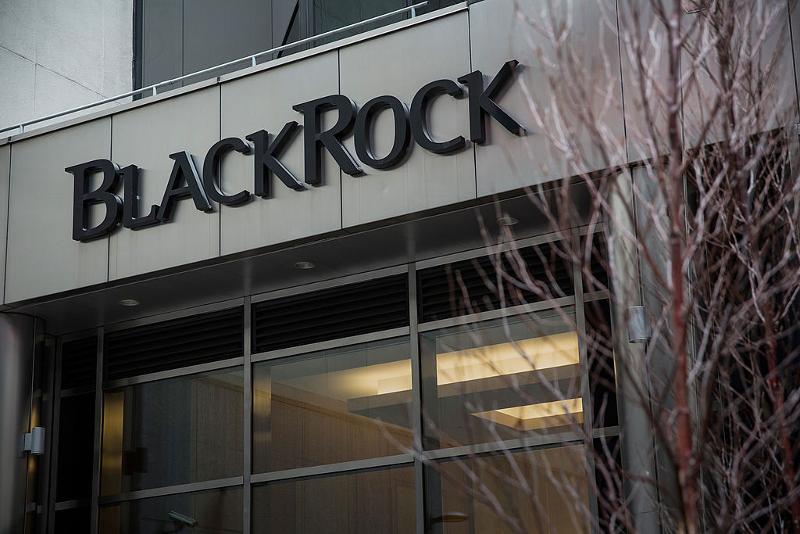In a game-changing move, JPMorgan's Onyx blockchain showcased its remarkable capabilities by enabling near-instant collateral transfer in a tokenized share transaction between BlackRock and Barclays. This groundbreaking transaction, executed on JPMorgan's Ethereum-based Onyx blockchain and Tokenized Collateral network (TCN), revolutionizes the traditional settlement process. Let's dive into the details of this transformative development.
Tokenized Share Transaction on JPMorgan's Onyx Blockchain
Discover the groundbreaking tokenized share transaction between BlackRock and Barclays facilitated by JPMorgan's Onyx blockchain and TCN.
JPMorgan's Onyx blockchain, built on Ethereum, has revolutionized the traditional settlement process by enabling a near-instant collateral transfer in a tokenized share transaction. In a groundbreaking move, BlackRock executed the transaction on JPMorgan's Onyx blockchain and Tokenized Collateral network (TCN), showcasing the immense potential of blockchain technology in the financial industry.
By leveraging the power of blockchain, the collateral transfer was completed almost instantaneously, a significant improvement compared to the traditional settlement solutions that would typically take a day. This speed and efficiency open up new possibilities for capital efficiency, allowing locked funds to be freed up and used as collateral in new transactions.
JPMorgan's Onyx blockchain has been at the forefront of exploring the tokenization of traditional financial assets since 2015. With this successful tokenized share transaction, JPMorgan plans to expand its offerings to include other assets as collateral, such as equities and fixed income, further enhancing capital efficiency and streamlining the settlement process.
Benefits of Tokenization and Collateral Transfer
Explore the advantages of asset tokenization and near-instant collateral transfer on JPMorgan's Onyx blockchain.
Asset tokenization brings numerous benefits to the financial industry. By converting traditional financial assets into digital tokens, these assets become more easily divisible, transferable, and tradable. This increased liquidity and accessibility unlock new opportunities for investors and institutions alike.
Furthermore, tokenization enhances capital efficiency by freeing up locked funds that can be used as collateral in new transactions. This enables institutions to optimize their capital allocation and improve overall liquidity in the market.
JPMorgan's Onyx blockchain, with its near-instant collateral transfer capabilities, takes these benefits to the next level. By leveraging blockchain technology, the settlement process becomes faster, more secure, and more transparent, eliminating the need for intermediaries and reducing operational costs.
The Role of JPMorgan's Onyx Blockchain in Financial Innovation
Discover how JPMorgan's Onyx blockchain is driving financial innovation and transforming the traditional financial landscape.
JPMorgan's Onyx blockchain has been at the forefront of driving financial innovation since its launch in 2015. With its permissioned fork of the Ethereum network, Quorum, JPMorgan has been exploring the potential of blockchain technology in various areas of finance.
By enabling tokenization and near-instant collateral transfer, JPMorgan's Onyx blockchain is revolutionizing the way financial assets are traded, settled, and collateralized. This technology opens up new possibilities for capital efficiency, liquidity optimization, and risk management.
As JPMorgan continues to expand its offerings and explore new use cases for blockchain technology, we can expect further advancements in financial innovation and a transformation of the traditional financial landscape.
Conclusion
The tokenized share transaction between BlackRock and Barclays, facilitated by JPMorgan's Onyx blockchain and TCN, marks a significant milestone in the financial industry. By leveraging blockchain technology, the transaction showcased the immense potential for near-instant collateral transfer and asset tokenization, revolutionizing the traditional settlement process.
This groundbreaking development not only improves capital efficiency but also enhances liquidity, accessibility, and transparency in the market. JPMorgan's Onyx blockchain continues to drive financial innovation, opening up new possibilities for institutions and investors alike.
FQA :
What are the benefits of asset tokenization?
Asset tokenization brings increased liquidity, divisibility, and tradability to traditional financial assets. It enhances capital efficiency and unlocks new opportunities for investors and institutions.
How does JPMorgan's Onyx blockchain improve the settlement process?
JPMorgan's Onyx blockchain enables near-instant collateral transfer, eliminating the need for intermediaries and reducing operational costs. It also enhances security and transparency in the settlement process.
What other assets can be used as collateral on JPMorgan's Onyx blockchain?
JPMorgan plans to expand its offerings to include other assets such as equities and fixed income as collateral, further enhancing capital efficiency and streamlining the settlement process.

